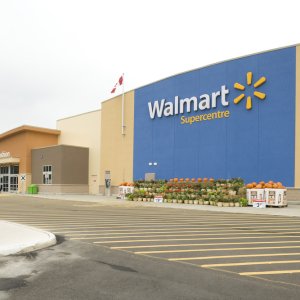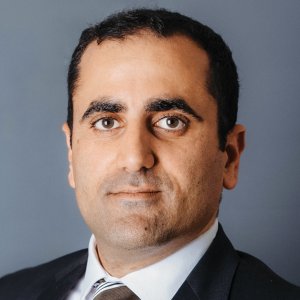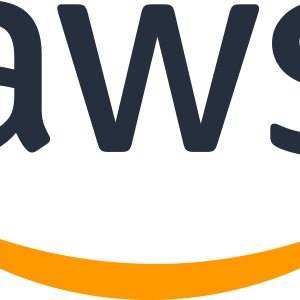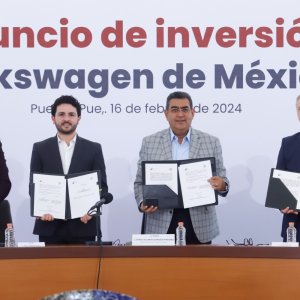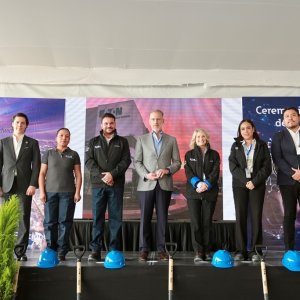Free Zones: The Door to a Global Market

STORY INLINE POST
At a certain moment all businessmen have imagined their product expanding globally but for many, the term “globalize” sounds like an impossible dream or perhaps something from the very distant future. However, if we delve into this topic, commercial globalization began a long time ago, with merchants and the traffic of fabrics, gold, silver, precious stones and spices. Later, the industrial revolution created transportation and mass production, achieving an intercontinental scale of products, and this transformed structures, commercial and production systems in all economic areas of our planet, thus influencing not only the economic sphere but also the social, political and cultural.
This globalization has led to an interdependence between countries. An example of this is the Walmart chain, which, in the US, estimates tell us that products of Chinese origin constitute 70-80 percent of the company’s merchandise. Knowing that the chain has 4,700 stores in the US, the dependency becomes almost absolute. Now let's look at it inverse, Walmart has nearly 11,000 stores in 27 countries. This creates a great dependence of consumers on the products offered by the chain and thus, we are all part of this globalization, but how do we actively participate in it economically ? hTis brings us to the issue of international competitiveness, where each company and economic activity must compete with their counterparts located anywhere in the world. To survive, they must transform comparative advantages into competitive advantages. The unilateral opening to international trade of countries in the Far East, Latin America, Eastern Europe, etc., has produced an unprecedented change in the international competitiveness of countries and companies.
One of the keys to international competitiveness is "logistics" and this brings me to the subject of this article, which is a vital tool that I consider essential for globalization: free zones (FZ). [1]
A free zone is a designated area in which companies are taxed very lightly or not at all to encourage economic activity. The taxation rules and duties are determined by each country. The World Trade Organization (WTO) Agreement on Subsidies and Countervailing Measures (SCM) outlines the conditions and benefits of free zones.
In free zones, business laws and taxes differ from the rest of the host country. Some of these benefits (depending on the country) are: 100 percent foreign ownership, 100 percent repatriation of capital and profits, fast and easy business set-up procedures, developed business communities, 100 percent exemption from corporate and income taxes, 100 percent exemption from customs duty, independent laws and regulations, easy regional market access and, in general, a modern and sophisticated logistics infrastructure.
Furthermore, some countries, such as the United Arab Emirates [2], categorize their free zones by the type of activity: Commercial and trade, renewable energy, maritime services, industrial activity, logistics, innovation, artificial intelligence and futuristic activities, events and conferences, creative design, human services, commodity trade, e-commerce and support services, media, etc.
Establishing yourself in a specialized free zone allows the entrepreneur to access not only the regional market with the tax benefits that we have already discussed, but also to have services that facilitate fluid workflows, saving companies considerable time and effort.
Returning to the topic of this article, suppose you sell coffee, and you want to expand to the Middle East. Let's take as an example Dubai, in the United Arab Emirates, where there is a free zone called DMCC (Dubai Multi Commodities Centre). [3] This free zone includes companies that trade or work with coffee, tea, food grains, gold, diamonds and base and precious metals.
DMCC has the Coffee Center, which offers world-class infrastructure and services for the storage, processing, roasting, packing and delivery of green beans according to precise specifications. It offers fully dedicated and temperature-controlled coffee storage. Coffee growers, exporters, merchants, roasters and retailers will find here a great opportunity to have their product available for the Middle Eastern market. (By the way, it is a great consumer of coffee.) It is also important to understand that being in a specialized area becomes a community that connects producers and exporters with global markets, creating new business opportunities for all stakeholders in the coffee value chain. Currently, the DMCC stocks more than 100 varieties of coffee from major producing regions, such as Central and South America, Africa, and Asia. This large global coffee sourcing footprint has made the Center an attractive hub for companies that trade coffee around the world.
Let's go to a very different category: services, specifically education and training. A free zone with that specialty is DKP (Dubai Knowledge Park). [4] This zone is specialized for professional development and training companies and it currently houses management companies, human resources, recruitment, consulting, executive search, professional training and professional development. The professional environment here is unique and allows business professionals and individuals to develop sought-after professional skills and grow their careers, talents and abilities. In this case, DKP is the only free zone in the world dedicated to human resource management and excellence in learning.
It is important to know more about the options for free zones in the world, since they differ between them depending on the country. The important factor is to find which one is most suitable for our product or service. For this, I recommend visiting the webpage of the World Trade Organization. [1]
It is true that globalizing is a challenge, but today regardless of whether it is a product or a service, the tools that the initiatives of some countries and technology provide us, allow any entrepreneur with vision to be able to place their products on the other side of the world. Do not forget to consider first of all your competitiveness in the region. It is very important to do our due diligence to know our strengths and weaknesses (SWOT) in the desired market. It's not a matter of luck to make your dreams come true, it's a matter of being competitive.
References
[1] Retrieved by the World Trade Organization. wto.org/
[2] Retrieved by UAE Ministry of Economy. moec.gov.ae
[3] Retrieved by Dubai Multi Commodities Centre. dmcc.ae
[4] Retrieved by Dubai Knowledge Park. dkp.ae








 By Gino Demeneghi | CEO -
Wed, 10/26/2022 - 12:00
By Gino Demeneghi | CEO -
Wed, 10/26/2022 - 12:00

